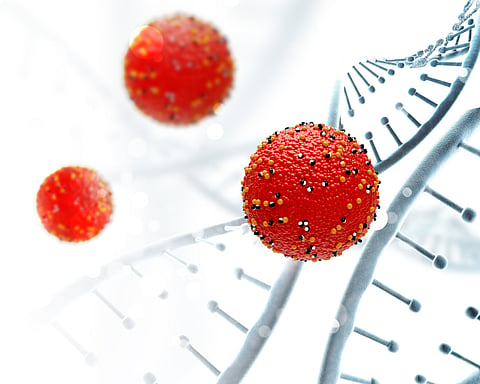

A new study offers fresh hope for people living with age-related macular degeneration (AMD), a leading cause of permanent vision loss among adults over 60 in the United States. Affecting nearly 20 million Americans, AMD damages the macula — the central part of the retina responsible for sharp, detailed, color vision — gradually robbing patients of their central eyesight while leaving peripheral vision largely unaffected.
Although current treatments can help slow the progression of the disease, none have been able to reverse the vision loss it causes.
Published in Cell Stem Cell, the phase 1/2a clinical trial tested a pioneering approach using retinal pigment epithelial stem cells derived from donated adult eye tissue. These early-stage trials primarily assess the safety of new therapies.
AMD presents in two forms — dry and wet — with dry AMD accounting for over 90% of cases. It occurs when retinal pigment epithelial cells malfunction and eventually die, leading to the deterioration of central vision. Once these cells are lost, they cannot regenerate naturally.
In this study, individuals with advanced dry AMD received transplants of specialized adult stem cells capable only of maturing into retinal pigment epithelial cells. Six patients received the smallest dose of 50,000 cells during eye surgery. The procedure was deemed safe, with no serious inflammation, complications, or tumor growth observed.
Researchers are now closely observing an additional 12 patients who were given higher doses of 150,000 and 2,50,000 cells. If these continue to show no safety concerns, the trial will advance to later phases, bringing the possibility of a future regenerative treatment for AMD one step closer.